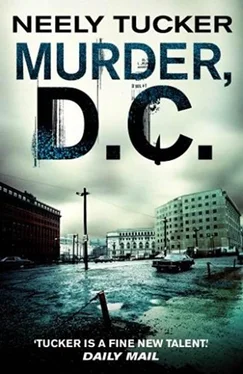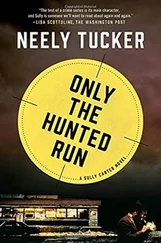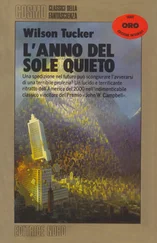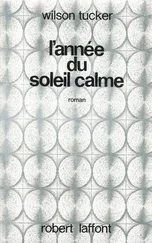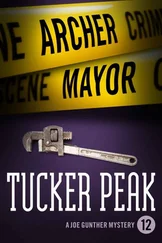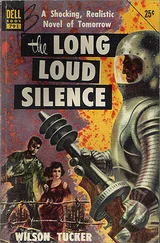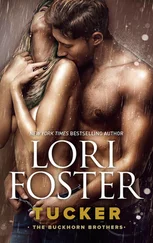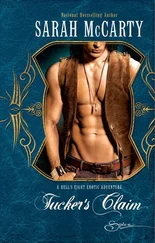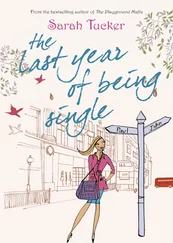It was a suite, actually. Sully splurged for the extra space, going for the in-room Jacuzzi. He figured he might be here a couple of days. If he was anything close to right, Stevens’s operatives were over at his house right now, tearing it apart. That was okay. He could settle that score.
The nice thing about the Seasons was it had an honest-to-God bar. He’d had a bottle of Basil’s sent up to the room with a big bucket of ice. Quitting cold turkey, he’d decided, might be a little much. He’d ordered oysters on the half shell, too, and cocktail shrimp, and now, the food demolished, he was deep into Billy’s research, steadily working the bottle down.
He spread the paperwork over the small writing table, just to get it all out in the open, until it became clear that wouldn’t contain the sprawl. So he moved the chairs and pushed the table against the wall, to give him space on the floor, only now the paperwork trail had spread into the adjacent bedroom in one direction and toward the front door in the other. There was a pile of pictures and booklets and other material he had yet to sort through on the couch. Still, he had to move the coffee table, grunting, to get more layout space.
Spot-reading this census report, looking through that Who’s Who in Washington, squinting his eyes to read the tiny print on a handwritten property deed, he began sorting the piles in chronological order. There was a lot of stuff. There just didn’t seem to be a point.
Finally, after two a.m., he refused to let himself refill the bourbon glass, not wanting the blur or the headache or lack of initiative, denying himself the relief from the ticking in his head. “What what what,” he said aloud. “Billy, you sad fuck, what is the what here?”
Elliot said Billy had been unbalanced but coherent, and his research showed the same sort of bipolar fuckery. If it had been in any sort of order anyone else once might have understood, that had vanished when Elliot dropped the folder and scooped it all back together, helter-skelter.
So, okay, okay, he told himself. Find the pattern. Find the sustained thought. What was Billy after?
The general theme was black history in D.C. And yes, it was some sort of genealogical project. Incorporation papers of a bank, bylaws of long-forgotten social clubs. The Sons and Daughters of Moses. The Knights of Pythias. Pictures of the old Dunbar High School, faces circled in grease pencil. A program from a Saturday evening social hour at the home of Georgia Douglas Johnson, up there in Shaw, walking distance from Howard University. This caught Sully’s eye. A reading from Jean Toomer-what was the year-yeah, before Cane , and then “remarks” from Alain Locke and W. E. B. DuBois. He whistled low. The family was plugged in.
Letters. Whole pouches of letters, held together with a rubber band, the missives still in the envelopes. He thumbed down through them, stopping at the return address of Mary Church Terrell. Inside, the cream-colored paper fading, the ink still there, was a thank-you note from the grand dame of D.C. black society to an Ellison whose first name Sully didn’t recognize. It concerned a generous contribution to the Colored Women’s League.
Scattered through these were property deeds for what looked to be houses or businesses in the city, or slim crisp copies from the National Archives, detailing Civil War records-he imagined he was going to find that one of the ancestors had fought among the colored Union troops-and copies of D.C.’s Social Register. Stapled to these pages was a long-ago article from a black newspaper-the Washington Bee , likely-which boasted that seven black families had made the Register. The Ellisons, the Syphaxes, the Quanders et al.
Billy, you crazy bastard, you were way down in the weeds , he thought. It wasn’t a sensation unknown to him, this kind of research piling up, getting out of hand, but with Billy’s mental instability, this was teetering into madness.
Huge chunks of paperwork documented the life of Nathaniel Benjamin Ellison, the fabled patriarch, the founder of the Washington Trust Bank, the nation’s first black-owned financial institution. Established in 1887, a copy of a newspaper ad stated, showing the five-story building standing alone, arched windows, hulking on its stretch of U Street.
On and on, Billy’s obsession spilled out over the room, defying categorization. Property rolls, tax rolls, handwritten source documents. And it struck Sully suddenly, looking over these sprawling mounds of history of the city’s black elites-the absence of political ambition.
Patronage jobs, yes. Federal staff positions, judgeships, a staff job at the Department of the Interior. But the city was a federal enclave, and the overwhelming majority of the black aristocracy, the homegrown Talented Tenth, seemed, based on what he was looking at, to have kept their vision on social climbing. They made calls, from the pulpit or the academic podium, for social integration and partnership, but mainly fought against segregation with the now quaint belief that by acquiring wealth, education, and social airs, they would be more palatable to white society. Adam Clayton Powell, the most powerful black man in Congress in the 1950s and 1960s, hailed from Harlem. Shirley Chisholm came down from New York, too. Their new black neighbors in D.C. neither had a vote in Congress nor governed their own city. They were presided over by the feds, as if an occupied people.
So, when the Civil Rights Movement swept into and over the city in the late 1960s and home rule took effect, the hands taking the reins of political power in the federal city were often the callused palms of the dispossessed and their champions, the interlopers from elsewhere, who galvanized the Slightly Less Talented Ninety Percent.
And thus, in a city of serious and sober black men of achievement and good standing for more than a century, the city’s dominating power broker almost overnight became Marion Barry, the charismatic cotton chopper from the Mississippi Delta. Indianola. Jesus. Sully wondered how many people in D.C. had ever been to that place, or knew the difference between Greenwood and Greenville.
The Ellisons and their peers, embarrassed if not offended by Barry, kept to their pleasant smiles and good manners along the Gold Coast, invested in their children’s futures, summered on the Vineyard, and slowly, steadily began migrating to the finer suburbs of McLean, Bethesda, Potomac, and maybe Silver Spring, watching the old neighborhoods of Shaw and Logan Circle and U Street melt into urban decay.
So this is the world Billy had re-created, seeking to bring his vanished family back to life. It appeared to be a labor of love, and Sully could not help but be touched by it. He followed the genealogy backward, laying out clumps of paperwork for each generation.
William Sanders, his dad, did not seem to have been of much interest to Billy, and certainly none of his ancestors had been, who were scarcely mentioned. William had come up from Georgia. High school football star, the son of a marine. William himself went on to serve as a marine in Vietnam, where he was decorated for combat bravery and heroism. Scholarships. Eventually accepted at Harvard Law, where he met Delores.
In the files, then came Delores and William’s life together-some of their Jack and Jill connections, a copy of the deed for their house on the Vineyard (modest four-bedroom, two-and-a-half-bath, close to the waterfront but not on it). Press releases from when they were both hired at the Stevens firm.
Billy showed up in the records as an Ellison on his birth certificate. Got his dad’s first two names, took his mom’s last. From the research, it appeared Billy had agreed with the emphasis on the Ellisons-there was almost nothing in the files on the Sanders of Georgia. It was like his dad had been reduced to a posthumous footnote.
Читать дальше
